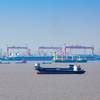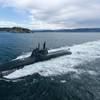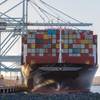Canada may offer landed immigrant status to boat people who agree to testify against the "human trafficking" rings that brought them illegally to the country's shores, according to Canada's immigration minister.
The proposal is among a series of changes being considered for the country's immigration laws, which came under fire this summer when a series of smuggling boats packed with migrants from China arrived on Canada's Pacific Coast.
Immigration Minister Elinor Caplan floated the proposal in an address to immigration lawyers, and said it might help boat people overcome their fear of turning in traffickers, whom she likened to slave traders.
"I want to consider strengthening our case against organized criminals by empowering their victims," Caplan said.
The traffickers, who are frequently members of international Asian-based crime gangs, often charge migrants more than $30,000 to make the transpacific voyage in cramped and dilapidated former fishing vessels.
According to knowledgeable observers, the traffickers - known as "snake heads" - demand little cash up front but have the migrants pay off their debts by working in indentured labor, prostitution for example, in major cities such as Toronto and New York.
"These victims often have reason to fear for their lives and the lives of their family members back home. This exploitation is reprehensible," Caplan said.
She said the Canadian government sees a difference between traditional smugglers, who sometimes help individuals escape persecution, and the trafficking rings that have targeted Canada, Australia and the United States with boatloads of people.
"In such criminally organized human trafficking, Canada is facing something new," Caplan said.
Caplan defended the new practice of detaining boat people while their refugee claims are considered on grounds that authorities fear the migrants would disappear before their cases were decided.
Of the 78 migrants who arrived in the first boatload to hit the Pacific Coast this year and were not detained, more than 60 are now missing. Many are thought to have been taken by the traffickers to New York to pay off their debts.
Caplan said the government would likely "clarify" its policy on using detention when it tables an updated immigration law early next year, but did not indicate whether that would lead to an increase in detentions. - (Allan Dowd, Reuters)
Sponsored Content
Chris-Marine’s solutions help to prolong engine lifetime

Subscribe for
Maritime Reporter E-News
Maritime Reporter E-News is the maritime industry's largest circulation and most authoritative ENews Service, delivered to your Email five times per week










